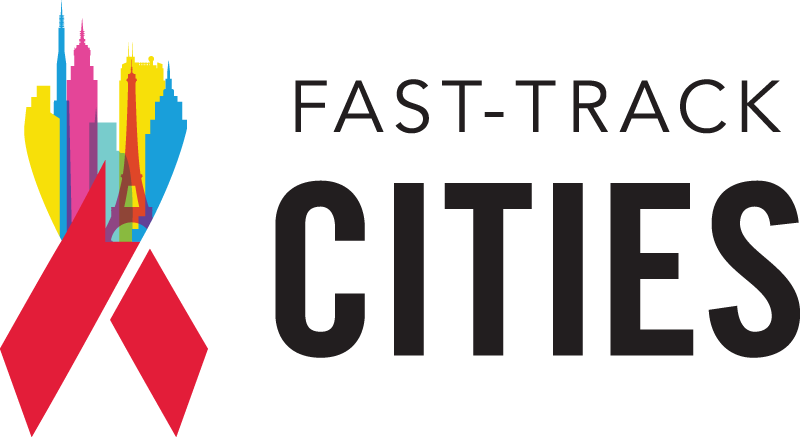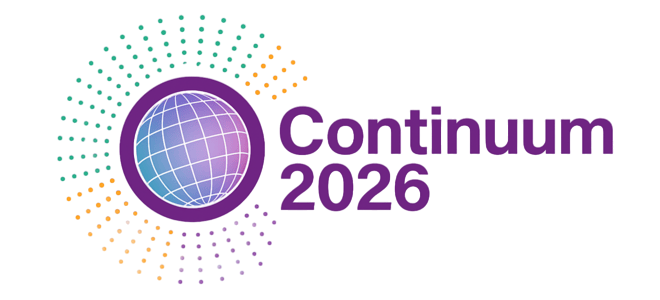
CONTACT: Stephen Head, Media (EU)
+44 (0) 7768 705945
- New Survey of >24,000 People in Europe Reveals HIV Stigma Still Widespread -
July 23, 2018 – Results from a new, large-scale, Europe-wide survey of over 24,000 people in 12 countries[1] demonstrate that, despite significant progress over almost four decades, HIV-related stigma persists as a major challenge for people living with HIV (PLHIV). While experts in the field, PLHIV and allies recognize that stigma and discrimination are unfounded, the Is HIV Sorted? survey has revealed there is still much work that needs to be done among the general public. Negative societal attitudes towards PLHIV pose a barrier to achieving the Joint United Nations Programme on HIV AIDS (UNAIDS) 90-90-90 treatment targets by 2020, as stigma discourages testing and can impede PLHIV’s access to and engagement and retention in HIV care.[i]
HIV transmission remains a significant concern across the European continent. According to the World Health Organization (WHO), in 2016 more than 160,000 people were diagnosed with HIV in the European region. This is the highest number of people ever newly diagnosed in one year, with the greatest number of new diagnoses in the Eastern European region.[ii]
Initial results from the Is HIV Sorted? survey, jointly conducted by the International Association of Providers of AIDS Care (IAPAC), the core technical partner of the Fast-Track Cities initiative, and Gilead Sciences, were released today at the 22nd International AIDS Conference, Amsterdam. Although results from the survey were broadly consistent across Europe, there were some notable differences between Eastern[2] and Western[3] regions:[iii]
- Across Europe a significant proportion of respondents (68%) would not feel comfortable dating someone who is living with HIV (66% in Western Europe and 74% in Eastern Europe)
- In Eastern Europe, over half (52%) of respondents have negative attitudes about working with PLHIV; around a quarter (24%) in Western Europe also have the same negative attitude
- Across Europe half (50%) of respondents believe that PLHIV should not be allowed to work as healthcare professionals
- In Eastern Europe only one in five (20%) respondents believe that PLHIV should be able to do any job, regardless of their status; a quarter (25%) believe that PLHIV should not even be allowed to work in a store
Successful HIV treatment and management that yields an undetectable level of HIV in the blood (viral suppression) means that the virus is virtually untransmittable from HIV-positive to -negative sexual partners (the premise of the Undetectable=Untransmitable [U=U] message). However:3
- Only around one in 10 respondents (12%) understood the meaning of ‘undetectable,’ with approximately one third believing that being undetectable means that you can still transmit HIV to someone else
- More than half (53%) of respondents believed that it would still be possible to transmit HIV to others, even if the treatment was having the best effect possible (viral suppression)
- Only approximately half (47%) of respondents were aware that it is possible for women living with HIV who are undetectable to conceive HIV negative children
“Although we have taken significant steps forward in addressing HIV-related stigma experienced by PLHIV, the Is HIV Sorted? survey results demonstrate that we cannot be complacent,” said Dr. José M. Zuniga, President/CEO, International Association of Providers of AIDS Care (IAPAC). “There is still a significant lack of understanding about HIV. Fear of stigma is a major barrier to people getting tested, which is the first step necessary to achieve the 90-90-90 targets. We must expand our education and awareness-raising efforts to ensure the wider public are more informed, so that people can live positively with HIV.”
The survey also found worrying levels of complacency with respect to HIV prevention. Almost a quarter of respondents said they had a new sexual partner in the last year but, of these respondents, only 44% always used a condom, and almost one in four respondents rarely or never used a condom with a new sexual partner.3
Encouragingly respondents, particularly those in Eastern Europe, appear to believe that HIV is still a significant issue, with nearly half (47%) across Europe believing that HIV is still a major health concern and less than one in five (18%) Eastern European respondents believing that HIV is under control in their country. Linked to this, the majority of respondents (73% in Western Europe and 82% in Eastern Europe) believe that funding for HIV should be a priority for their government or health service.3
“These data are a wake-up call to all of us involved in efforts to attain the 90-90-90 targets. 2020 is just two short years away,” continued IAPAC’s Dr. Zuniga. “We must not allow HIV to be deprioritised - either in the halls of government or in the minds of the general public. These data are valuable to initiatives such as Fast-Track Cities enabling us to work with local stakeholders to eliminate misperceptions about HIV, strengthen primary HIV prevention efforts and maximise use of the tools that we have to treat and prevent HIV infection.”
Gregg Alton, Executive Vice President International Operations & Corporate Affairs, Gilead Sciences, said, “These results reinforce the critical need for the whole HIV community to work together to tackle the significant issues that still remain in HIV prevention, diagnosis and care. We hope that these results will contribute to robust and productive discussions at this conference, as we focus on breaking down barriers and building bridges to reach key populations, and ensure that no-one is forgotten as we collectively work to stop the virus.”
###
- Notes to editors –
About Is HIV Sorted?
The Is HIV sorted? Survey was commissioned by the International Association of Providers of AIDS Care (IAPAC), the core technical partner of the Fast Track Cities initiative, and Gilead Sciences. The survey respondents included 18,169 HIV-negative[4] adults living in nine countries in Western Europe, including seven with Fast-Track Cities (France, Germany, Italy, Spain, United Kingdom, Ireland, Austria, The Netherlands and Switzerland) and 6,043 HIV-negative§ adults living in three countries in Eastern Europe, two with Fast-Track Cities (Romania, Ukraine and the Russian Federations). The survey aimed to provide insights into the general publics’ awareness, perceptions, knowledge, and attitudes towards HIV. The survey was fielded in June 2018 by the independent market research company Opinium. Additional survey data will be made available during 2018 and 2019.
About Fast-Track Cities
Cities bear a large share of the global HIV burden. In countries with large HIV epidemics, the numbers of people living with HIV (PLHIV) in urban areas are so high that effective city-level action is likely to influence national outcomes. Even where an HIV epidemic is smaller, cities are home to large numbers of people belonging to key populations at higher risk of HIV infection but which often receive limited attention in HIV programs. The Fast-Track Cities is a global partnership between more than 250 high HIV burden cities, the International Association of Providers of AIDS Care (IAPAC), the Joint United Nations Programme on HIV/AIDS (UNAIDS), and the United Nations Human Settlements Programme (UN-Habitat), and the city of Paris. The initiative was launched on World AIDS Day 2014 in Paris. For more information please visit: http://www.fast-trackcities.org.
About the UNAIDS 90-90-90 Targets
The Joint United Nations Programme on HIV/AIDS (UNAIDS) asserts that attaining the 90-90-90 targets is a means of placing national and municipal jurisdictions on a trajectory towards ending AIDS as a public health threat by 2030. The targets translate into:
- 90% of people living with HIV (PLHIV) knowing their HIV status
- 90% of PLHIV who know their HIV-positive status on antiretroviral therapy (ART)
- 90% of PLHIV on ART achieving viral suppression
About Gilead Sciences
Gilead Sciences, Inc. is a research-based biopharmaceutical company that discovers, develops and commercializes innovative medicines in areas of unmet medical need. The company strives to transform and simplify care for people with life-threatening illnesses around the world. Gilead has operations in more than 35 countries worldwide, with headquarters in Foster City, California.
For nearly 30 years, Gilead has been a leading innovator in the field of HIV, driving advances in treatment, prevention and cure research. Today, it’s estimated that more than 11.5 million people living with HIV globally receive antiretroviral therapy provided by Gilead or one of the company’s generic manufacturing partners.
For more information on Gilead Sciences, please visit the company’s website at www.gilead.com, follow Gilead on Twitter (@GileadSciences) or call Gilead Public Affairs at 1-800-GILEAD-5 or 1-650-574-3000.
References
[1] The 12 countries included 9 with Fast-Track Cities: Austria, France, Germany, Netherlands, Romania, Spain, Switzerland, Ukraine and United Kingdom
[2] ‘Eastern Europe’; Romania, Russia, Ukraine (n=6,043)
[3] ‘Western Europe’; Austria, France, Germany, Ireland, Italy, Netherlands, Spain, Switzerland, United Kingdom (n=18,169)
[4] Self-described
[i] Centers for Disease Control and Prevention (CDC). HIV Stigma Fact Sheet. Available at https://www.cdc.gov/actagainstaids/pdf/campaigns/lsht/cdc-hiv-TogetherStigmaFactSheet.pdf [last accessed July 2018]
[ii] ECDC. HIV/AIDS surveillance in Europe 2017. Available at https://ecdc.europa.eu/sites/portal/files/documents/20171127-Annual_HIV_Report_Cover%2BInner.pdf [last accessed July 2018]
[iii] Opinium. Is HIV sorted survey (sample: 18,169). June – July 2018. Survey commissioned by the International Association of Providers of AIDS Care (IAPAC) and Gilead Sciences.





